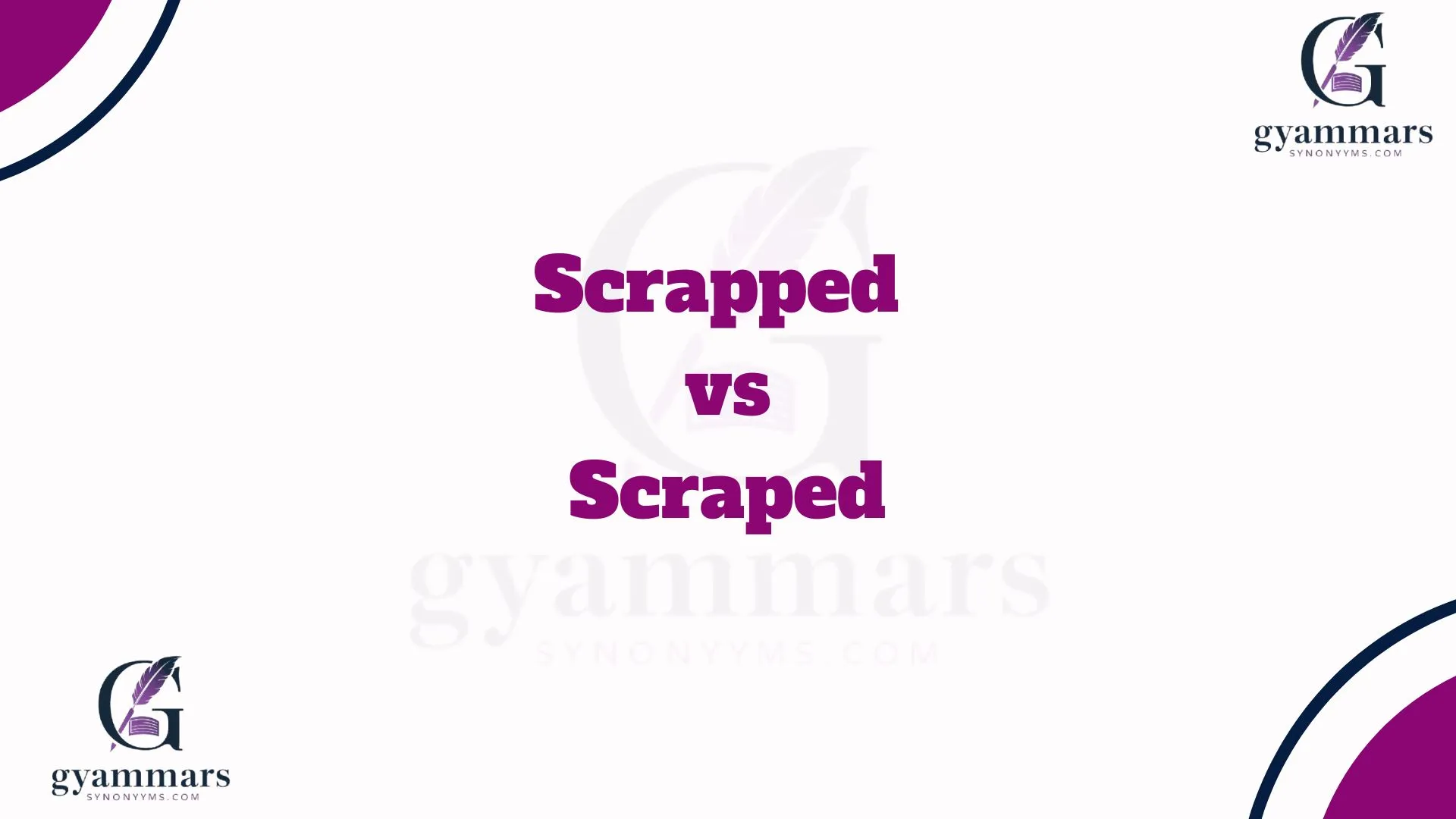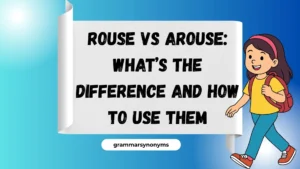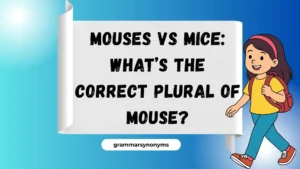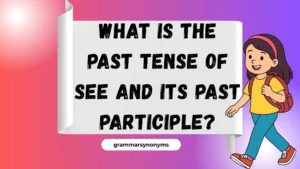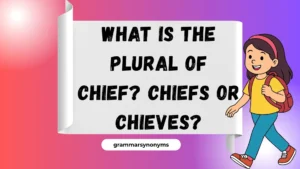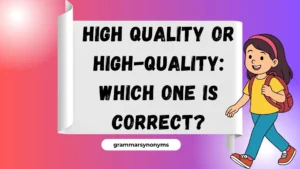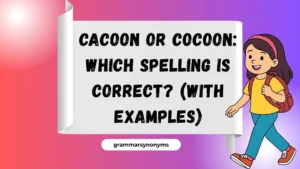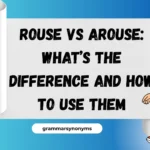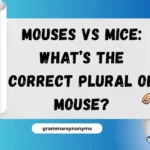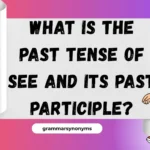When you look at the words “scrapped” and “scraped,” you might think they’re pretty much the same. They even sound similar, and both involve some form of removal or destruction. But if you’ve ever found yourself hesitating when trying to choose between the two, you’re not alone.
It’s easy to confuse scrapped and scraped because they share similar roots. However, the meanings and usages couldn’t be more different. In this article, we’ll break down these two terms and explain when and how to use each one.
We’ll also cover real-world examples, common mistakes, and tips for making sure you never misuse these words again.
Understanding the distinction between “scrapped” and “scraped” is crucial for clear communication, especially in professional writing, technical documentation, and even casual conversation.
Whether you’re writing a blog, crafting a business report, or simply chatting with friends, the accuracy of your word choices can make a big difference. Let’s dive into it.
Why the Confusion Exists
The confusion between scrapped and scraped happens because both words look and sound strikingly similar, but they come from different verbs. These two words start with the same “scr-” sound, and both can refer to some form of removal. However, the meanings diverge sharply.
The problem often starts when people use one word in place of the other without considering the specific context in which it’s meant. In both written and spoken language, the difference between these two terms can be easily overlooked, especially when they’re used in casual conversations or when the speaker isn’t paying full attention to their choice of words.
In fact, you’ve probably seen or heard phrases like, “The website was scrapped,” when it should’ve been “scraped,” or, “We need to scrap the idea,” when “scrape” would have been more accurate. This kind of mistake can lead to miscommunication or confusion.
But don’t worry—we’re here to clear things up!
Definition of ‘Scrapped’
What Does ‘Scrapped’ Really Mean?
The verb scrap means to discard, abandon, or break apart something that is no longer useful or needed. In the context of scrapped, the meaning focuses on disposal or rejection. It refers to things that are no longer worth keeping and are either tossed aside or recycled into something else.
Common Contexts Where ‘Scrapped’ Is Used
- Vehicles: Imagine an old car that’s no longer working. It gets “scrapped” for parts or disposed of at a junkyard.
- Example: “They scrapped the old car after it broke down for good.”
- Example: “They scrapped the old car after it broke down for good.”
- Projects: A plan or proposal can be scrapped if it’s deemed no longer feasible or relevant.
- Example: “We had to scrap the project because it wasn’t delivering results.”
- Example: “We had to scrap the project because it wasn’t delivering results.”
- Plans: Sometimes, people talk about scrapping plans when they abandon or cancel something they had been thinking about.
- Example: “I had to scrap my plans for a weekend trip after the weather forecast turned bad.”
- Example: “I had to scrap my plans for a weekend trip after the weather forecast turned bad.”
Key Takeaway: When you scrap something, you’re either discarding it or giving up on it. It’s rejected or removed because it’s no longer useful, needed, or viable.
Definition of ‘Scraped’
What Does ‘Scraped’ Mean?
On the other hand, scrape involves removing something from a surface, often by rubbing, scratching, or collecting it. The verb scrape can refer to the act of pulling or scraping something off of something else—whether it’s a physical object or a piece of digital information.
In a more digital context, scraping is commonly used in the world of technology to describe the process of extracting data from websites or online databases.
Common Contexts Where ‘Scraped’ Is Used
- Physical: When you scrape something off a surface, it typically means to remove or clear it by applying force or friction.
- Example: “I scraped the old paint off the wall before I started the new coat of paint.”
- Example: “I scraped the old paint off the wall before I started the new coat of paint.”
- Injuries: A scrape can also refer to a minor injury where the skin is rubbed off.
- Example: “She scraped her knee while playing outside.”
- Example: “She scraped her knee while playing outside.”
- Digital Scraping: In technology, scraping often refers to the process of automatically gathering data from websites or other digital resources.
- Example: “The bot scraped the product information from the online store for our database.”
- Example: “The bot scraped the product information from the online store for our database.”
Key Takeaway: Scraped refers to something being removed from a surface, either physically or digitally. When scraping happens, you’re pulling something off or collecting it from a larger body or surface.
Scrapped vs. Scraped: A Direct Comparison
Here’s the tricky part: while both words involve removal, the action and context are vastly different.
| Context | Scrapped | Scraped |
| Meaning | Discarded or abandoned | Removed from a surface, physically or digitally |
| Usage Examples | – Scrapped an old car | – Scraped paint off a wall |
| – Scrapped an idea | – Scraped data from a website | |
| Common Contexts | Vehicles, projects, plans | Injuries, cleaning, digital data collection |
Key Differences:
- Scrapped is about discarding or abandoning something that’s no longer useful.
- Scraped is about removing something from a surface—either through physical means or digital extraction.
Mistakes to Avoid (With Real Examples)
You might have encountered the following common errors while reading or listening to discussions about these terms. Misusing these words could lead to confusion and a lack of clarity in your writing or speech.
Here are some examples of incorrect usage and how to fix them:
Common Errors:
- “The website was scrapped for data.”
- Correction: “The website was scraped for data.” (The website wasn’t discarded; rather, the data was collected or extracted from it.)
- Correction: “The website was scraped for data.” (The website wasn’t discarded; rather, the data was collected or extracted from it.)
- “We scrapped the proposal after reviewing the feedback.”
- Correction: “We scrapped the proposal after reviewing the feedback.” (This is correct because the proposal was abandoned.)
- Correction: “We scrapped the proposal after reviewing the feedback.” (This is correct because the proposal was abandoned.)
These types of errors can easily be avoided by remembering the clear distinction between scrapping (discarding) and scraping (removing).
Tips to Remember the Difference
Here are a few ways to help you easily remember the difference between scrapped and scraped:
- Mnemonic Devices:
- Scrap = Trash (Think of scrap as something you throw away—like trash.)
- Scrape = Surface (You scrape things off a surface, like scraping the last bits of peanut butter from the jar.)
- Scrap = Trash (Think of scrap as something you throw away—like trash.)
- Visual Analogy:
- Scrapping a car is like sending it to the junkyard—it’s gone for good.
- Scraping data is like gathering information from a surface—it’s not removed permanently, but it’s collected.
- Scrapping a car is like sending it to the junkyard—it’s gone for good.
- Real-Life Scenario:
- If you’re discarding or giving up on something (like a project or an old car), it’s likely you’re talking about something scrapped.
- If you’re gathering or removing something from a surface, whether it’s data or something physical, you’re talking about something scraped.
- If you’re discarding or giving up on something (like a project or an old car), it’s likely you’re talking about something scrapped.
When Misusing These Words Can Hurt
Using the wrong term at the wrong time can lead to confusion or even miscommunication. This is especially true when you’re involved in fields where precision is critical, such as technical documentation, legal documents, or data-related tasks.
For example:
- A scraped website refers to data that has been extracted through automation, while a scrapped website refers to a website that’s been abandoned or removed altogether.
- Misusing these terms in business, legal, or technical contexts could damage your professional credibility.
If you’re working on a project that involves data collection or technical writing, getting these terms right is essential to maintaining your professionalism and ensuring the accuracy of your work.
Wrap-Up – Final Takeaways
Now that we’ve covered the core differences between scrapped and scraped, here’s a quick cheat sheet for reference:
| Word | Meaning | Usage Example |
| Scrapped | Discarded, abandoned, no longer useful | “The old system was scrapped.” |
| Scraped | Removed from a surface, gathered | “The bot scraped the website’s data.” |
So, remember:
- Scrapped = discarded or abandoned
- Scraped = removed from a surface or gathered
Bonus – Related Words People Confuse
You’re not the only one who’s mixed up “scrapped” and “scraped.” But these two aren’t the only culprits in the world of English lookalikes. Here are a few more commonly confused words that are worth clearing up—especially if you’re a writer, editor, or content creator.
Scrap vs. Scrape
Let’s first get down to the roots of it all.
| Word | Part of Speech | Meaning | Example |
| Scrap | Noun | A small piece or leftover | “He used a scrap of paper to write a note.” |
| Scrap | Verb | To throw away or discard | “They scrapped the prototype.” |
| Scrape | Verb | To remove something by rubbing | “She scraped the frost off the windshield.” |
Tip: Scrap is a thing (a leftover or waste) or an action (to discard).
Scrape is almost always an action—you’re taking something off.
Crap vs. Scrap
Yes, really! Typos and auto-correct make this mistake more often than you think.
- Crap is informal or slang for something worthless or poor in quality.
Example: “That’s a load of crap.” - Scrap refers to leftover material or the act of discarding.
Example: “Throw it in the scrap bin.”
Mixing these up in writing—especially in professional or academic settings—could drastically change the tone of your message.
Strap vs. Scrap
This one happens due to typos more than anything else.
- Strap is something you tie or fasten with.
Example: “She strapped her helmet on before biking.” - Scrap is used for discarding something or referring to leftover bits.
Example: “They scrapped the idea after feedback.”
FAQ Section
To solidify understanding, here are some frequently asked questions people search for related to scrapped and scraped. These are also excellent for SEO and increasing engagement time.
What does it mean to “scrape data”?
To scrape data means to automatically extract information from a website or database. This is often done using bots or scripts that go through a page’s code and pull out relevant content like product listings, prices, emails, or metadata.
Use it when you’re talking about data collection, not disposal.
Example: “We scraped 5,000 product titles from Amazon for our comparison tool.”
Can a project be “scraped”?
No. You don’t “scrape” a project. If a project is no longer being pursued or has been abandoned, then it has been scrapped.
Incorrect: “The marketing campaign was scraped.”
Correct: “The marketing campaign was scrapped due to budget cuts.”
Is “scrapping” a bad thing?
Not necessarily. Scrapping can be positive if it’s part of making room for better ideas or moving on from something that no longer serves its purpose.
Example: “They scrapped the outdated model and launched a modern version.”
Can you say “scraped together a team”?
Yes—and this is one of the few times where scrape is used metaphorically. To scrape together something means to gather it with effort, often with limited resources.
Example: “We scraped together a team of volunteers for the event.”
Conclusion: Mastering the Art of Scrapped vs. Scraped
In the world of writing and communication, precision is key. While scrapped and scraped might seem like subtle distinctions, using the wrong one can cause confusion and weaken your message.
Understanding the difference between these two words ensures that you come across as knowledgeable, clear, and professional in your writing—whether you’re discussing abandoned plans or data collection.

“Mia Rose at Grammar Synonyms is your ultimate guide to mastering language with style and precision. Whether you’re looking to enhance your vocabulary, perfect your grammar, or discover the ideal synonym, Mia Rose offers expert resources and creative solutions to help you express yourself flawlessly. With Grammar Synonyms, unlock a world of language possibilities and elevate every piece of writing you create.
